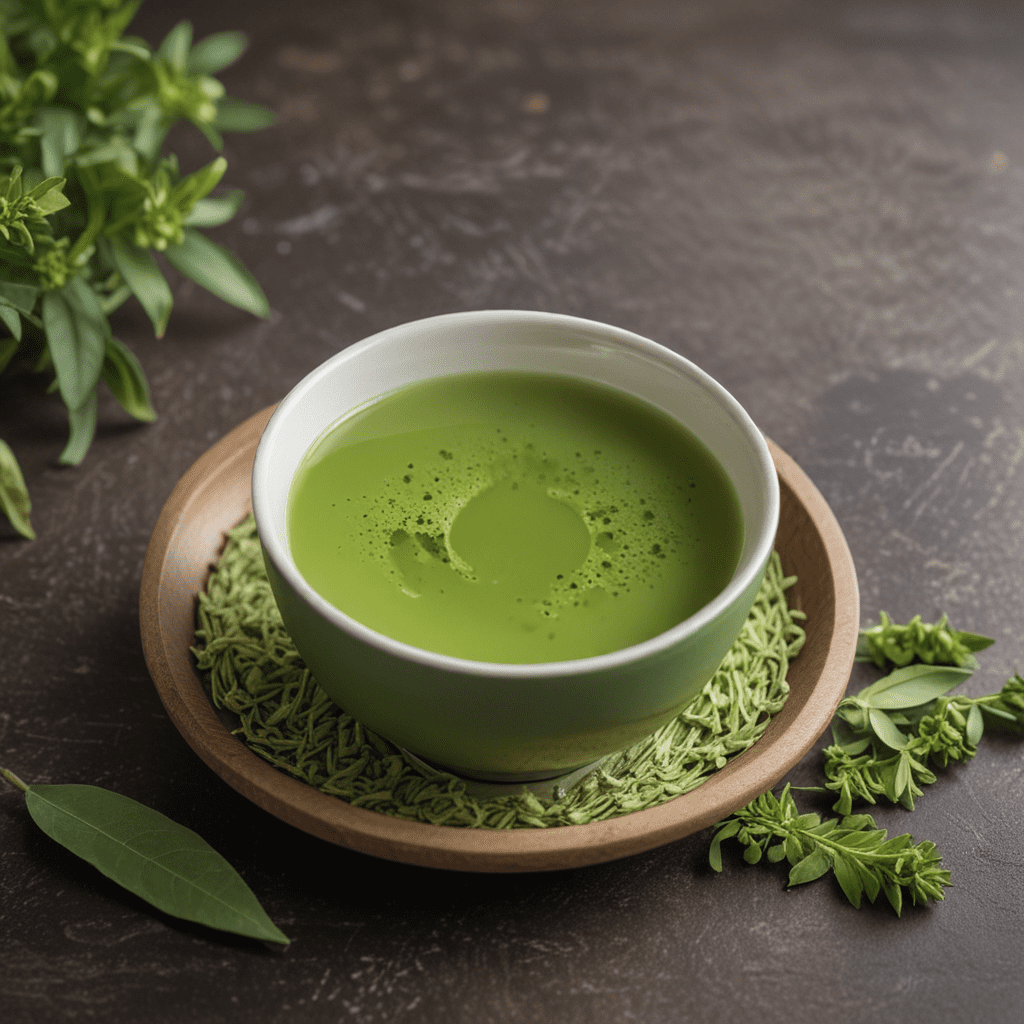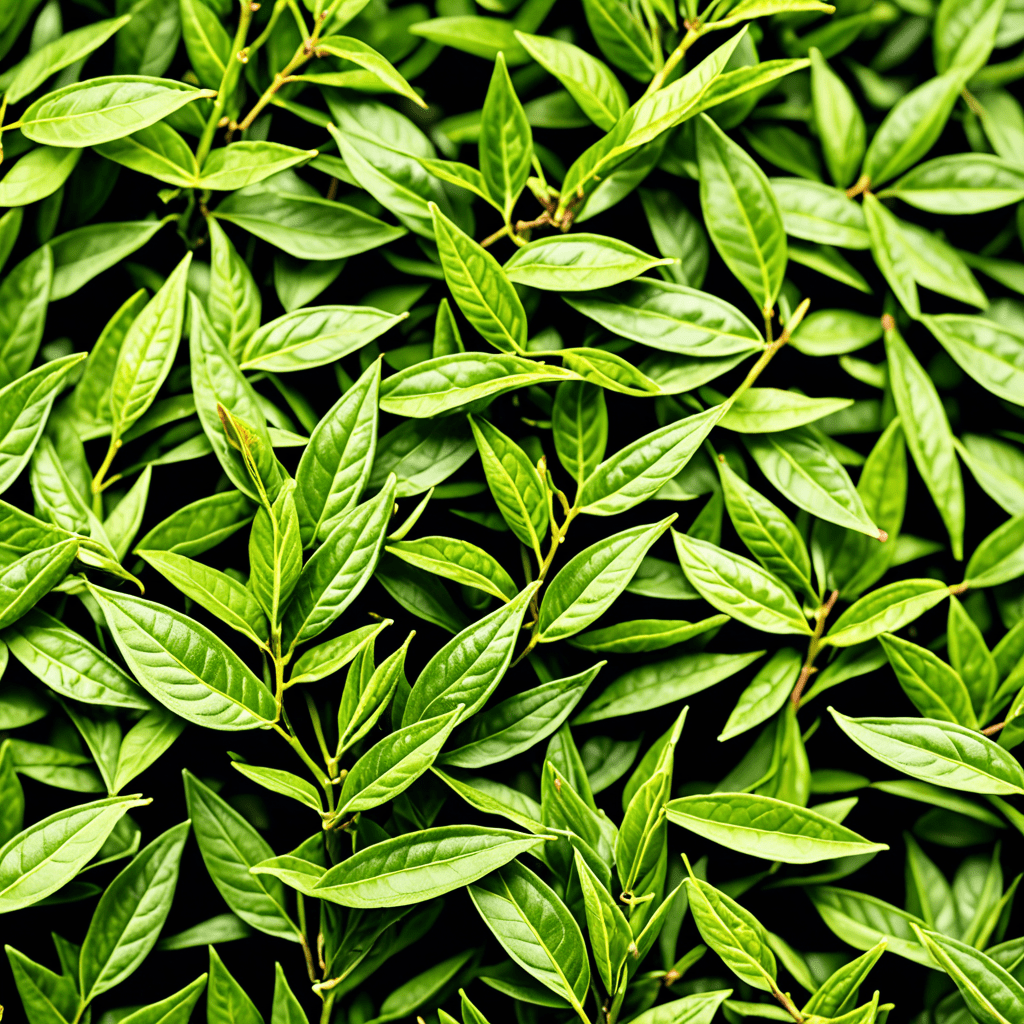1. What is Matcha?
Matcha is a finely ground green tea powder made from shade-grown tea leaves. It has a vibrant green color and a slightly bitter, earthy taste. Unlike traditional green tea, where the tea leaves are steeped in hot water and then discarded, matcha is whisked directly into hot water, allowing you to consume the entire leaf and receive its full nutritional benefits.
2. Common Allergies Triggered by Tea
Tea is generally considered safe for consumption, but some people may experience allergic reactions to certain compounds found in tea leaves. The most common allergens in tea include caffeine, tannins, and theaflavins. Caffeine is a stimulant that can cause anxiety, insomnia, and headaches in some individuals. Tannins are polyphenols that can bind to proteins in the body, potentially interfering with nutrient absorption. Theaflavins are antioxidants that can cause allergic reactions in some people, including hives, swelling, and difficulty breathing.
3. Health Benefits of Matcha
Matcha is a rich source of antioxidants, including catechins, which have been linked to a number of health benefits. These antioxidants can help protect cells from damage, reduce inflammation, and improve overall health. Matcha also contains L-theanine, an amino acid that promotes relaxation and focus without causing drowsiness. Additionally, matcha is a good source of fiber, chlorophyll, and vitamins A, C, and E.
4. Anti-Allergic Properties of Matcha
In addition to its many other health benefits, matcha has also been shown to possess anti-allergic properties. This is due to the presence of quercetin, a flavonoid that has been shown to inhibit the release of histamine, a compound that plays a key role in allergic reactions.
5. Quercetin and Its Role in Matcha
Quercetin is a powerful antioxidant that has been shown to have anti-inflammatory and antihistamine effects. It works by inhibiting the release of histamine from mast cells, which are cells that are involved in the allergic response. By reducing histamine levels, quercetin can help to alleviate allergy symptoms such as sneezing, runny nose, and itchy eyes.
6. Matcha's Effect on Histamine Levels
Studies have shown that matcha can effectively reduce histamine levels in the body. In one study, participants who consumed matcha had significantly lower histamine levels than those who consumed a placebo. This suggests that matcha may be a natural antihistamine that can help to relieve allergy symptoms.
7. Matcha as a Natural Antihistamine
Matcha contains several compounds that have antihistamine effects, including quercetin, L-theanine, and epigallocatechin gallate (EGCG). Quercetin, as discussed earlier, is a powerful antioxidant that inhibits the release of histamine. L-theanine has been shown to reduce anxiety and promote relaxation, which can be helpful for people experiencing allergy-related stress. EGCG is a catechin that has been shown to have anti-inflammatory and anti-allergic effects.
8. Anecdotal Evidence of Matcha's Allergy Relief
While scientific studies on the anti-allergic effects of matcha are limited, there is a growing body of anecdotal evidence suggesting that matcha can help to relieve allergy symptoms. Many people report that consuming matcha regularly has reduced their symptoms, including sneezing, runny nose, and itchy eyes. Some people have even reported that matcha has helped them to reduce their reliance on allergy medication.
9. Precautions and Potential Risks
Matcha is generally safe for consumption, but it is important to note that it does contain caffeine. People who are sensitive to caffeine should be cautious about consuming matcha, as it can cause anxiety, insomnia, and headaches in some individuals. Additionally, matcha may interact with certain medications, so it is important to talk to your doctor before consuming matcha if you are taking any medications.
10. Conclusion: Can Matcha Help Alleviate Allergies?
While more research is needed to fully understand the anti-allergic effects of matcha, the evidence to date suggests that matcha may be a helpful natural remedy for allergy symptoms. Matcha contains several compounds that have antihistamine and anti-inflammatory effects, and anecdotal evidence suggests that it can help to reduce allergy symptoms in many people. If you are looking for a natural way to relieve your allergy symptoms, matcha is definitely worth trying.
FAQs
Can matcha help with all types of allergies?
Matcha may help to relieve symptoms of various types of allergies, including seasonal allergies, food allergies, and pet allergies. However, it is important to note that matcha is not a cure for allergies, and it may not be effective for everyone.
How much matcha should I consume to relieve allergy symptoms?
The amount of matcha needed to relieve allergy symptoms can vary from person to person. A good starting point is to consume 1-2 cups of matcha tea per day. You can gradually increase your intake if needed.
Can I take matcha with allergy medication?
It is important to talk to your doctor before taking matcha with allergy medication, as matcha may interact with certain medications.


